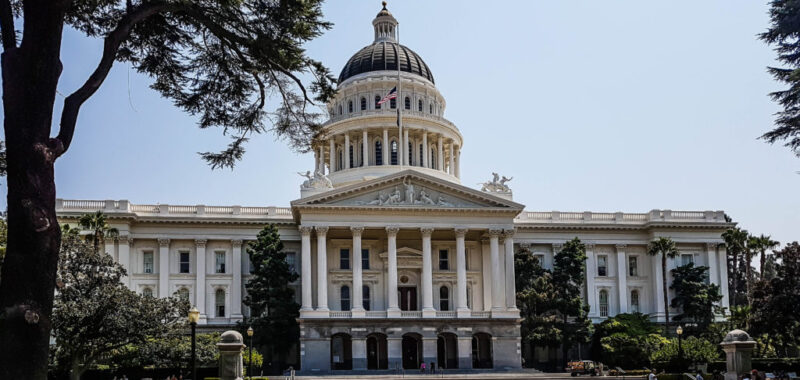
Credit: Flickr
The California School Boards Association is suing the Newsom administration, claiming that a state budget deal giving schools nearly all the money that they sought also violated a voter-approved method for setting annual school and community college funding.
In a lawsuit filed this week, the school boards association wants the Superior Court in Sacramento County to declare that the education budget violated the letter and spirit of Proposition 98, the four-decade-old formula that determines how much of the General Fund must be allocated to schools and community colleges. The lawsuit would not affect this year’s budget, which took effect July 1.
CSBA acknowledges that the Newsom administration used novel strategies to hold schools and community colleges harmless from legally permissible funding cuts. But those tactics, they maintained, undermined the constitutionally protected funding guarantee; under similar, though probably rare, circumstances in the future, CSBA said, districts would be “vulnerable” to further “manipulations.”
“CSBA’s defense of voter‐approved Proposition 98 is non‐negotiable, as is the obligation of the state to follow the Constitution that governs it,” said Albert Gonzalez, president of the California School Boards Association and a Santa Clara Unified school board member, in a statement.
Speaking for the governor, the California Department of Finance refuted CSBA assertions in a series of exchanges with legislative leaders in July. Joe Stephenshaw, director of the Department of Finance, asserted that all of its actions were legal and constitutional.
The lawsuit pertains to actions that Newsom and the Legislature took in the 2022-23 budget, which presented an unusual challenge. Because of the devastating impacts of winter storms and floods, the federal government and the state pushed back the tax collection deadline from April to October. Without having tax receipts in hand, Newsom and the Legislature made a best-guess estimate of what Prop. 98 revenues would be for 2022-23. As it turned out, revenues were $8.8 billion less than what they appropriated. Newsom revised the Prop. 98 funding level downward from $106.3 billion to $97.5 billion to reflect the change.
Rather than cut Prop. 98 funding midyear, when school districts and community colleges had already budgeted for higher revenues, Newsom left what it considered an over-appropriation alone. To make the numbers pencil out without harming schools, it made a series of unorthodox adjustments in this year’s budget that included deferring $2.6 billion in 2022-23 funding and creating a $5.5 billion debt that will be repaid from the General Fund, with no effect on Prop. 98, over five years.
Annual state budgets always require complex multi-year revenue adjustments since governors and legislators project revenues for next year based on current year’s revenues, and estimates for the following year are made 12 to 18 months before the actual revenues are known.
CSBA’s argument is that lowering the 2022-23 Prop. 98 level to $97.5 billion is not merely an accounting adjustment but a constitutional violation. Voters passed Prop. 98 in 1988 to guarantee minimal funding annually for education. In most years, the Prop. 98 appropriation becomes the base amount for the following year, which is then adjusted for enrollment, inflation or increases in capital gains receipts. Reducing the 2022-23 Prop. 98 level that the Legislature approved was illegal and potentially dangerous, the organization contends.
The school boards association may find that other education groups may not agree with its stand on principle. The California Teachers Association negotiated the final budget details with the California Department of Finance, and education advocates and lobbyists were effusive in praising Newsom’s approach.
“This is a good deal for public schools. In its simplest terms, this agreement will protect the state’s core TK-12 investments, like the Local Control Funding Formula and new whole child programs,” Derick Lennox, senior director of governmental relations and legal affairs for the California County Superintendents Association, said in late May, after the deal was announced.
CSBA’s lawsuit is narrow and would apply only in future years when taxes are collected late. The group’s assumption is that a future governor would not be as accommodating as Newsom and would lower the base to cut funding drastically.
Prop. 98 was written with that protection in mind and shouldn’t be tampered with, it argues. The Department of Finance counters that statutory changes to Prop. 98 permit subsequent adjustments based on revised revenues.

